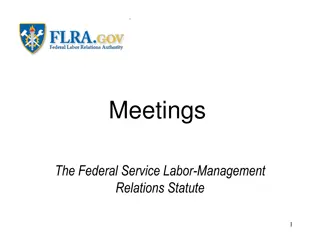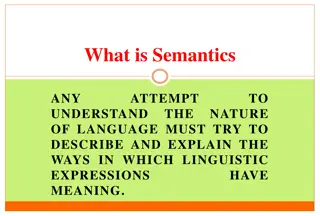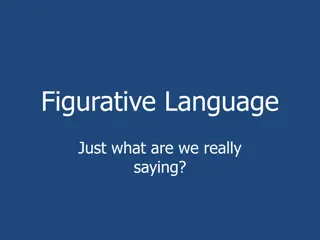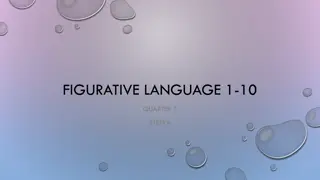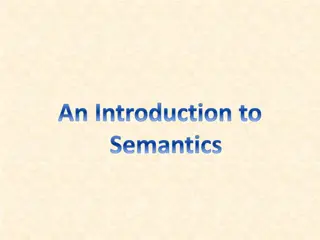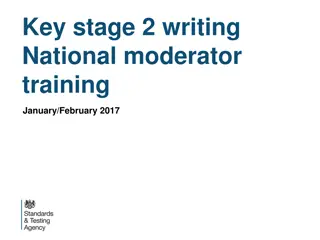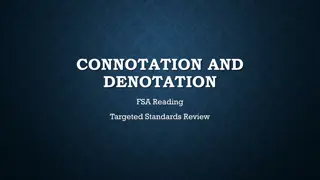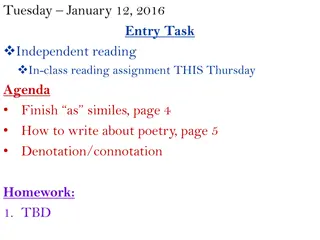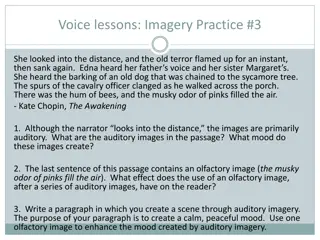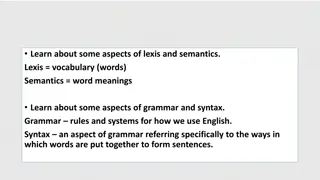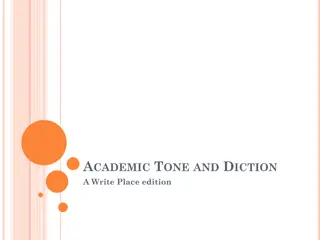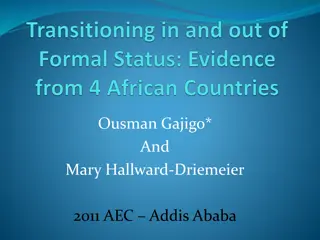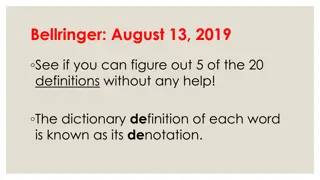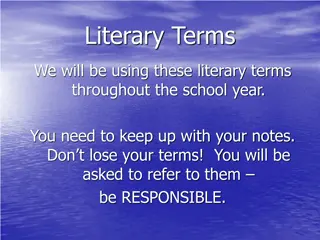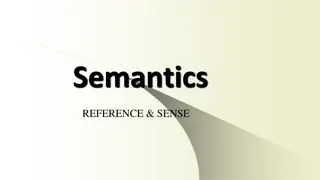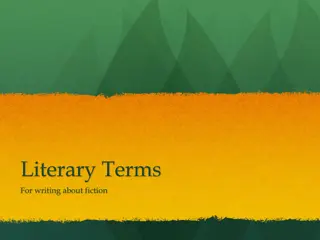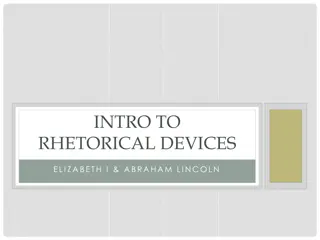Exploring Diction in Writing: Connotation, Denotation, and Formality
Diction, the author's choice of words, is foundational in shaping voice. This content delves into diction elements such as connotation, denotation, and formality. It analyzes how words like "thirsting" and "prowling" evoke specific feelings and attitudes, giving examples from literature to illustrate their impact on meaning. Practice exercises help solidify understanding of diction nuances in writing.
Download Presentation

Please find below an Image/Link to download the presentation.
The content on the website is provided AS IS for your information and personal use only. It may not be sold, licensed, or shared on other websites without obtaining consent from the author. Download presentation by click this link. If you encounter any issues during the download, it is possible that the publisher has removed the file from their server.
E N D
Presentation Transcript
ELA 3-4h Diction
Diction Author s choice of words Foundational; serves as the basis for other elements of voice
2 elements Connotation/Denotation Formality
Connotation & Denotation The metaphorical idea or feeling invoked by the word (connotation) vs. the literal dictionary definition of the word (denotation) Connotative language is . Symbolic Figurative Metaphoric Denotative language is Literal Exact Journalistic
Formality High, formal: cultured, educated, scholarly, ornate Middle or neutral: conversational, simple, plain Low, informal: slang, colloquial, jargon
Practice (from Voice Lessons) Consider the following passage: Meanwhile, the United States Army, thirsting for revenge, was prowling the country north and west of the Black Hills, killing Indians wherever they could be found. Dee Brown, Bury My Heart at Wounded Knee
Connotation check What are the connotations of thirsting? What feelings are evoked by this diction? What are the connotations of prowling? What kind of animals prowl? What attitude toward the U.S. army does this diction convey? APPLY: Use an eating or drinking verb in a sentence which expresses anger about a parking ticket. Do not use the verb to literally express eating or drinking. Instead, express your anger through the verb. Use Brown s sentence as a model.
Check yourself! (Voice Lessons cont.) Thirsting connotes desire, craving, yearning; the craving goes beyond simple physical need and sinks to the level of animal impulse. Prowling connotes stealth, craftiness and predation and brings to mind animals that stalk to hunt (lion, coyote, etc.): the U.S. Army is reduced to predatory animals through this word choice.


